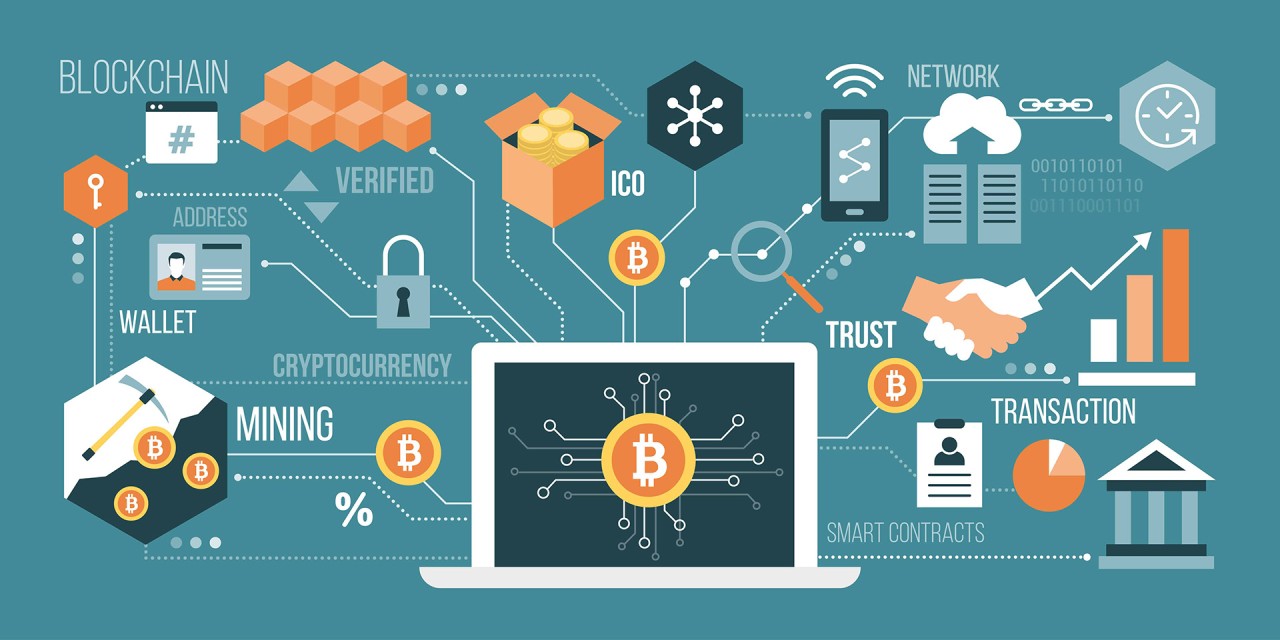The Rise of Blockchain Technology in ICT
Blockchain technology is revolutionizing the Information and Communication Technology (ICT) sector by providing a secure, transparent, and decentralized framework for data management and communication. From enhancing cybersecurity to streamlining operations, blockchain is reshaping how ICT services are delivered and utilized.
1. What is Blockchain Technology?
Blockchain is a decentralized, distributed ledger that records transactions across multiple computers.
- Key Features:
- Transparency: All participants can view transaction records.
- Immutability: Once data is recorded, it cannot be altered.
- Decentralization: Eliminates the need for a central authority.
2. Blockchain’s Role in ICT
Blockchain is driving innovation in the ICT sector by addressing critical challenges:
- Data Security: Protects against unauthorized access and cyberattacks.
- Efficient Transactions: Enables faster and more reliable data exchange.
- Decentralized Communication: Facilitates peer-to-peer communication without intermediaries.
3. Applications of Blockchain in ICT
a. Cybersecurity
Blockchain enhances security by creating tamper-proof records.
- How It Works:
- Data is encrypted and distributed across multiple nodes.
- Smart contracts automate security protocols.
- Example:
- Guardtime uses blockchain to secure data for governments and enterprises.
b. Data Management
Blockchain improves data storage and sharing.
- Benefits:
- Ensures data integrity and traceability.
- Reduces reliance on centralized databases.
- Example:
- IBM Blockchain provides solutions for secure data sharing in supply chains.
c. IoT Integration
Blockchain ensures secure communication between IoT devices.
- How It Helps:
- Tracks device activity in real time.
- Prevents unauthorized access to IoT networks.
- Example:
- IOTA uses blockchain to enable secure IoT transactions.
d. Digital Identity Management
Blockchain offers a secure way to manage digital identities.
- Benefits:
- Reduces identity theft and fraud.
- Simplifies user authentication processes.
- Example:
- Microsoft’s Azure AD Verifiable Credentials uses blockchain for identity verification.
e. Decentralized Cloud Storage
Blockchain provides a secure alternative to traditional cloud storage.
- How It Works:
- Data is split into encrypted fragments and distributed across the network.
- Users maintain control over their data.
- Example:
- Storj and Filecoin offer blockchain-based cloud storage solutions.
4. Advantages of Blockchain in ICT
- Security: Protects against data breaches and hacking.
- Transparency: Increases trust among stakeholders.
- Cost-Effectiveness: Reduces costs by eliminating intermediaries.
- Scalability: Supports large-scale data and communication systems.
5. Challenges of Blockchain in ICT
- Scalability Issues: Handling large volumes of data can be slow.
- Energy Consumption: Some blockchain networks require significant energy.
- Regulatory Uncertainty: Lack of clear regulations in many regions.
- Skill Gap: Limited expertise in blockchain development.
6. Future Trends in Blockchain and ICT
a. Blockchain and 5G
Blockchain will enhance the security and efficiency of 5G networks.
- Example:
- Decentralized management of network slices using blockchain.
b. Blockchain in Artificial Intelligence (AI)
Blockchain ensures transparency and traceability in AI systems.
- Example:
- Verifiable AI decision-making processes in healthcare and finance.
c. Smart Cities
Blockchain supports smart city initiatives by enabling secure data sharing.
- Example:
- Blockchain-based systems for energy management and transportation.
d. Blockchain for E-Government
Governments will adopt blockchain for secure and transparent services.
- Example:
- Voting systems, land registries, and digital tax management.
7. Real-World Use Cases
- Telecom: Blockchain simplifies roaming agreements and billing.
- Healthcare: Secures patient records and enables data sharing.
- Education: Provides verifiable digital certificates and transcripts.
- Finance: Facilitates cross-border payments and fraud prevention.
Conclusion
Blockchain technology is reshaping the ICT industry by offering unparalleled security, transparency, and efficiency. As adoption grows, blockchain will unlock new opportunities for businesses and governments worldwide. Embracing this technology is essential for staying competitive in the digital era.






